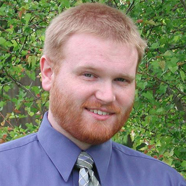We are ‘sheep without a shepherd’ no more

By: By Shawn Reeves
Sixteenth Sunday in Ordinary Time/July 19
Jeremiah 23:1-6; Psalm 23:1-3,3-4,5,6; Ephesians 2:13-18; Mark 6:30-34
—–
Most of us have never encountered an actual shepherd. Short of fairy tales, National Geographic articles, and films about pigs who want to be sheepdogs, we don’t really have contact with the lives of shepherds. Sure, we can draw a picture of Jesus as a shepherd and infer from it all kinds of warm sentiments, but the full relevance of such an image is mostly lost on an industrialized, non-nomadic audience. Yet, it is an occupation that exhibits a myriad of symbols and is one of the central images that theologically fascinated the ancient Hebrew soul.
The imagery of the shepherd is so pregnant with significance that even non-Hebrew societies utilized it as a pivotal symbol. From the Babylonian King Hammurabi to the ancient Greek chieftains noted by Homer, a successful leader had the qualities of not just a ruler but that of a shepherd. Indeed, their competence in “pasturing” the people is often cited in their times as the touchstone of the quality of their monarchy.
Bedouin shepherds of today continue ancient shepherding practices. Wherever the flock should go, the shepherd goes ahead, leading the flock by clicking or guttural calls that ensure they stay together. Without the continuous communication of the shepherd, the sheep easily wander, either by distraction or fear of something. It is the perfect analogy for the kind of guidance God deems lacking in the Hebrew leaders of our first reading.
The shepherd needs to scan the flock constantly and redirect any stragglers. Those who stray will certainly die if not found, if not by starvation then by the elements or predators. Keen attentiveness to the unity of the flock was paramount for care of the flock. Yet, God says of the Hebrew leaders, “You have not cared for them.” Rather than binding the flock in accord “You have scattered my sheep and driven them away.” Their communication has dissolved unity, not reinforced it.
The sheep have scattered, unguided and driven away. The shepherds are no longer the protection of their welfare but a threat to it.
BOUND TOGETHER
Then the Lord suddenly reveals that He, too, possesses shepherding skills — superior ones. Like the ancient shepherd-kings, God himself will draw the flock together, recollect his sheep, gathering them all together again in unity and safety, “and none shall be missing.” Through God’s hands, they shall again “increase and multiply.”
In this echoing of God’s original announcement to creation (Genesis 1:22) the Lord makes clear that His shepherding will be nothing short of a spiritual recreation. And so it is that Jesus found them “like sheep without a shepherd.” Beginning to teach them, the Lord himself gathers the remnant of His flock. God has come to “bring them back to their meadow.”
It is not just the flock of the Hebrews that God reclaims but the flock of humanity. “He came and preached peace to you who were far off and peace to those who were near.” The word we translate as “peace” is eirene in St. Paul’s original Greek, and it literally means “to join” or “to tie together as a whole.” It is so critical to St. Paul’s view of Jesus that he uses it four times in this short reading.
For St. Paul, the activity of binding together his followers is so central that he associates it with the very identity of Jesus: “He is our peace (eirene), he who made both one.” The disciples near to God through Jewish faith and those disciples from beyond the Hebrew people, both are joined together as one, common flock, “that he might create in himself one new person in place of the two . . . and might reconcile both to God in one body.”
Peace is established. The remnant flock is gathered and created anew. The Lord has proven Himself the Supreme Shepherd. “They need no longer fear and tremble.”
—–
SHAWN REEVES has served as the director of religious education at St. John’s Catholic Newman Center in Champaign since 2001. He and his family are members of St. Malachy Parish in Rantoul.





